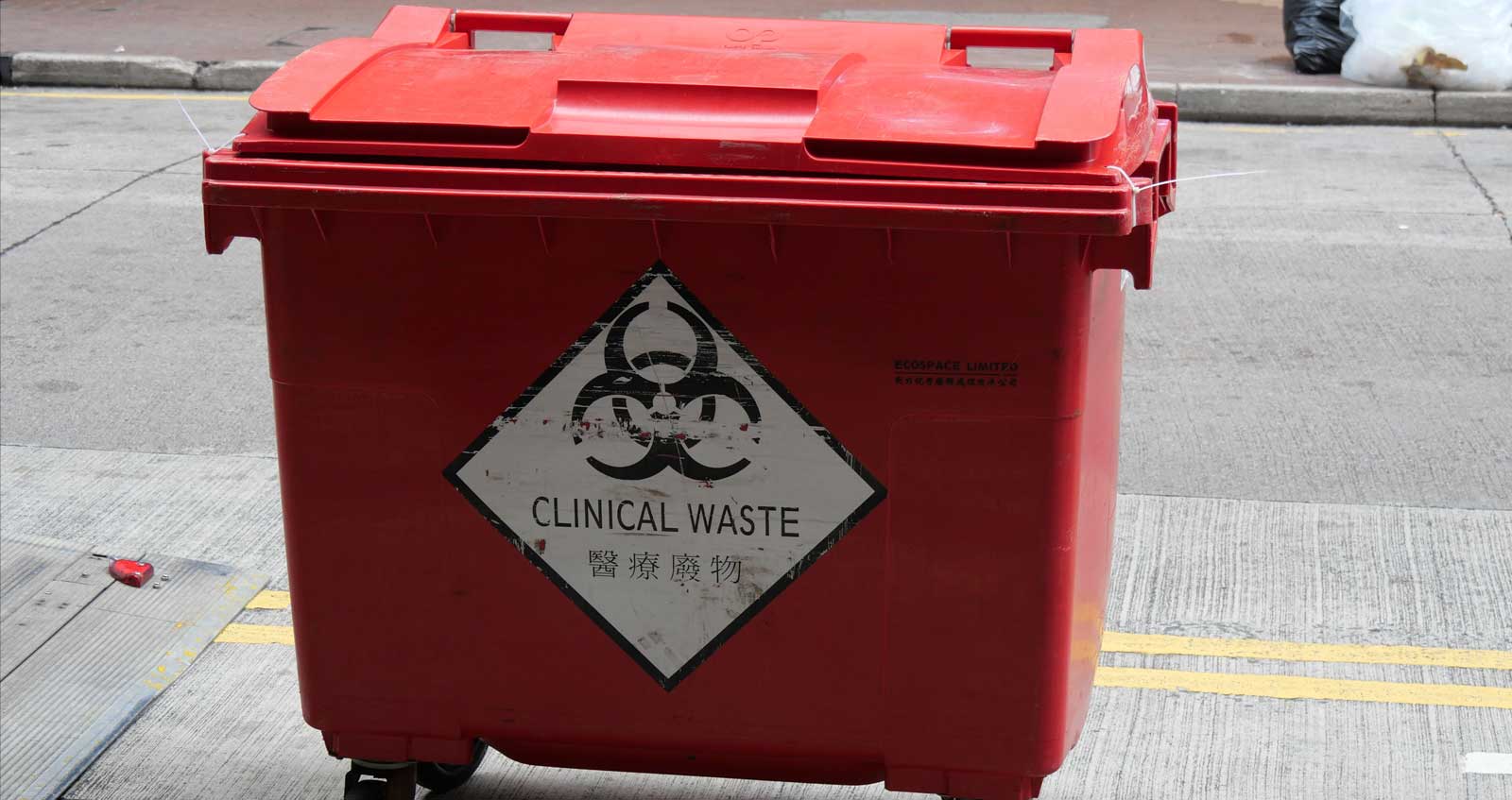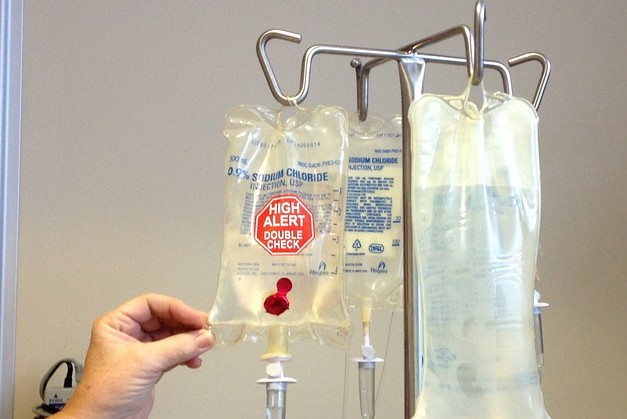Guardians of Tidiness: Local Medical Waste Removal Service for Your Assurance
Guardians of Tidiness: Local Medical Waste Removal Service for Your Assurance
Blog Article
Reducing Dangers and Protecting Public Health And Wellness: The Function of Medical Garbage Disposal
In today's globe, where public health worries are continuously rising, the proper management and disposal of medical waste play a critical role in decreasing threats and safeguarding the health of neighborhoods. As medical facilities create a considerable amount of waste that can potentially posture severe health and wellness and ecological threats, it becomes important to comprehend the importance of implementing effective techniques for its safe handling. In this discussion, we will discover the threats related to inadequate clinical waste administration, look into the regulations and standards that govern its disposal, and highlight the benefits of taking on safe practices. By diving right into this subject, we will uncover the pivotal function clinical garbage disposal plays in protecting public health and wellness and the atmosphere.
Value of Appropriate Medical Waste Disposal
Appropriate medical garbage disposal is of utmost value in ensuring the security of medical care workers and the public. medical waste disposal services with WasteX. Clinical waste, that includes things such as used needles, syringes, contaminated materials, and pharmaceutical waste, poses significant health and wellness threats if not thrown away effectively
The key factor for proper clinical garbage disposal is to stop the transmission of transmittable conditions. Healthcare workers are specifically susceptible to having and spreading out illness through exposure to infected waste. By implementing ideal disposal techniques, such as using puncture-resistant containers and making certain the proper segregation of different kinds of waste, the danger of infection can be reduced.
Furthermore, proper medical waste disposal is vital for securing the atmosphere. Some clinical waste consists of hazardous chemicals and substances that can pollute dirt and water resources if not managed correctly. This contamination can have lasting impacts on ecological communities and public wellness. By sticking to particular guidelines and policies for garbage disposal, we can prevent these hazardous compounds from getting in the environment and causing damage.
In addition to safeguarding human health and the atmosphere, proper medical garbage disposal also contributes in keeping the reputation and trust fund of health care establishments. Correct disposal techniques demonstrate a dedication to security and professionalism and reliability, which is necessary for preserving public confidence in health care solutions.
Threats Connected With Inadequate Medical Waste Monitoring
Inadequate clinical waste monitoring postures significant dangers to public wellness and the setting. Incorrect disposal of medical waste can cause the spread of infectious diseases, contamination of water resources, and the release of harmful chemicals right into the setting. One of the primary risks linked with poor clinical waste management is the transmission of infections. When medical waste, such as utilized syringes or contaminated dressings, is not dealt with correctly, it can enter into contact with individuals, resulting in the spread of diseases such as HIV, hepatitis B, and tuberculosis.
An additional danger is the contamination of water sources. Incorrect disposal of clinical waste can result in the release of harmful chemicals and microorganisms right into water bodies, infecting the water and posturing a danger to both animal and human health and wellness. This contamination can take place with the inappropriate disposal of drugs or the discharge of neglected clinical waste into water bodies.
Additionally, insufficient medical waste monitoring can result in the release of hazardous chemicals right into the atmosphere. Several medical products contain dangerous substances, such as mercury, lead, or contaminated materials. If these products are not thrown away appropriately, they can seep into the dirt or water, presenting a risk to ecological communities and human health.

Effective Techniques for Clinical Waste Handling
Applying secure and effective methods for the handling of clinical waste is vital in making sure the protection of public wellness and the setting. Medical waste, such as sharps, infected materials, and pharmaceuticals, can position significant threats if not taken care of effectively. To mitigate these threats, healthcare facilities need to adopt effective approaches for clinical waste handling.
One trick technique is segregation. Correct segregation involves separating different kinds of waste at the point of generation. This aids protect against cross-contamination and makes sure that each type of waste is dealt with and thrown away correctly. Health care centers should give clear guidelines and training to personnel on exactly how to segregate waste correctly.
Medical waste must be stored in leak-proof and puncture-resistant containers that are labeled appropriately. Normal evaluations and upkeep of these containers are essential to guarantee their honesty.
Appropriate documentation is additionally essential for reliable medical waste handling. Medical care centers ought to preserve precise documents of the type and amount of waste generated, in addition to the disposal methods made use of. This paperwork assists in tracking and tracking waste management methods, making certain my site conformity with guidelines, and determining areas for renovation.
Finally, medical care facilities need to establish clear methods for the transport and disposal of clinical waste. This includes functioning with trusted and qualified waste administration firms that adhere to correct handling, treatment, and disposal procedures. Normal audits and evaluations ought to be conducted to validate conformity with guidelines and market finest techniques.

Laws and Guidelines for Clinical Garbage Disposal
To ensure the secure and proper management of clinical waste, healthcare facilities have to stick to standards and policies developed by appropriate authorities. These standards and laws are established to safeguard public health and wellness, prevent ecological contamination, and decrease the danger of infectious conditions.
In several nations, such as the USA, the management of medical waste undergoes rigorous policies enforced by government agencies such as the Environmental Security Agency (EPA) and the Occupational Safety And Security and Health Administration (OSHA) These policies detail the demands for the partition, product packaging, labeling, storage space, transport, and disposal of medical waste. medical waste removal near me. They likewise give standards on the usage of individual safety devices (PPE) and the application of infection control procedures
Medical care facilities are needed to create and execute detailed medical waste management plans that address all aspects of waste handling. These plans need to consist of treatments for waste segregation, the use of suitable containers, worker training on waste monitoring techniques, and routine surveillance and bookkeeping of waste handling procedures.
Furthermore, health care facilities must maintain exact documents of their waste management activities and make sure that garbage disposal is executed by certified and certified waste administration companies (medical waste disposal services with WasteX). Non-compliance with these policies can cause penalties, fines, and legal consequences
Benefits of Safe Medical Waste Disposal for Public Health
Appropriate adherence to laws and guidelines for clinical garbage disposal not only ensures the secure monitoring of waste however additionally offers go to the website considerable advantages for public health. The risk-free disposal of medical waste plays an essential duty in avoiding the spread of infectious illness and shielding the health of medical care employees, patients, and the public.
One of the main benefits of risk-free medical waste disposal is the decrease of disease transmission. Medical waste, such as utilized needles and infected materials, can nurture contagious pathogens that posture a serious risk to human wellness.
In addition, risk-free clinical garbage disposal additionally aids to mitigate ecological air pollution. Improper disposal of clinical waste can lead to the contamination of water, air, and dirt, which can have detrimental effects on communities and public health and wellness. By complying with appropriate disposal methods, the threat of environmental contamination is reduced, making certain the well-being of both human beings and the environment.
In enhancement, proper medical garbage disposal practices additionally add to the general effectiveness and sustainability of health care systems. you can try this out By carrying out risk-free disposal techniques, medical care facilities can decrease the danger of mishaps, injuries, and infections among their team, leading to improved efficiency and minimized healthcare expenses.
Conclusion
In conclusion, ensuring appropriate medical garbage disposal is important for decreasing dangers and protecting public wellness. Insufficient monitoring of medical waste presents significant risks, such as the spread of infections and environmental contamination. Reliable approaches, in addition to standards and guidelines, play a vital function in taking care of medical waste safely. By applying risk-free medical waste disposal techniques, we can protect public health and produce a healthier setting for all.
In today's world, where public wellness concerns are constantly on the rise, the proper monitoring and disposal of clinical waste play an essential function in minimizing threats and protecting the health of communities. By delving into this subject, we will reveal the critical duty clinical waste disposal plays in shielding public wellness and the atmosphere.
Incorrect disposal of medical waste can lead to the launch of dangerous chemicals and pathogens right into water bodies, contaminating the water supply and posturing a danger to both animal and human health and wellness.In final thought, making sure proper clinical waste disposal is important for decreasing threats and shielding public health and wellness. By implementing safe clinical waste disposal techniques, we can safeguard public health and wellness and produce a healthier atmosphere for all.
Report this page